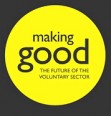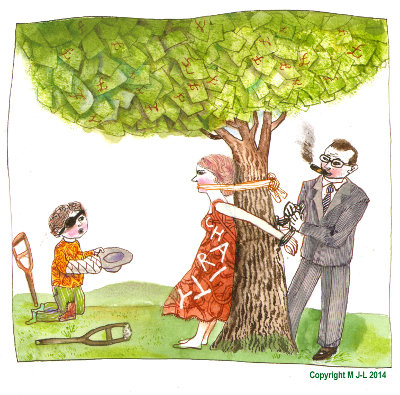 Peter Limbrick writes: In preparation of this Report by the Civil Exchange, voluntary sector leaders have debated the future of the voluntary sector in a series of blogs.
Peter Limbrick writes: In preparation of this Report by the Civil Exchange, voluntary sector leaders have debated the future of the voluntary sector in a series of blogs.
The following information includes extracts from those blogs.
The problems for the voluntary sector that have arisen during recent years include the following:
- Opportunities for government to consult charities in the preparation of new legislation have been curtailed.
- Charities have become mere sub-contractors in the delivery of public services – on the basis that they cannot muster the resources to become primary contractors.
- When charities feel an imperative to criticise government policy they are accused of contravening charity law – and therefore risk their income.
Dan Corry, chief executive of charity think tank and consultancy NPC, tells us:
'... the danger is that too much of the sector has become obsessed – for perfectly understandable reasons – with trying to win contracts. If you win a contract in a competitive tender then are you really likely to operate it very differently from another, maybe for-profit, provider?
'Charities are rarely able to compete for bigger contracts – especially those that contain large elements of payment by results – due to their inability to cope with the risk and cash-flow issues they present. They end up as sub-contractors, a situation many find very unsatisfactory from a mission perspective (if they don't agree with the way prime contractors deliver other parts of the service), as well as a business perspective (they have insufficient or unclear expectations about the volume of work they can expect).'
Sir Bert Massie of the Panel on the Independence of the Voluntary Sector tells us:
'... it is hard to believe that the Spare Room Subsidy, or Bedroom Tax, would have been introduced had expert voluntary organisations been invited to advise the government on its disastrous consequences...
'Criticism of a policy is interpreted as criticism of the government and therefore a political act that contravenes charity law. This distorted logic is increasingly used by the government to argue that it is the job of charities to provide services and not to engage in policy disputes with the elected government. Rather than defend its policies and address the issues the government seeks to eradicate criticism by attacking the critic. However... the recognition that charities have a legal right to campaign is being undermined.
'When Oxfam produced a Twitter post drawing attention to the effects of austerity measures on poorer people in the UK under the heading "A Perfect Storm" the reaction was immediate. Oxfam were condemned for being too political and reported by a Conservative MP to the Charity Commission.'
Jonathan Owen wrote in the Independent newspaper on Monday 10th November 2014 that, 'State funding for charities is now nearly £14bn a year – nearly 40 per cent of voluntary sector income.' This reinforces the argument in Making Good: the Future of the Voluntary Sector that charities are being demoted to mere agencies of the state – pipers that have to play the government's tune.
The Report's Editor, Caroline Slocock, is director of Civil Exchange. She writes in an introduction to these blogs:
'There have also been a number of discussions amongst essayists over the last few months, including at a debate at the Baring Foundation on 10 November 2014 which marked the launch of the publication. Here are some of the points which seemed to generate particular excitement and interest at that event:
- the importance of social value and capital as an engine of positive social change;
- the potential for the sector to coalesce around mission and purpose, despite the many different views and diversity within it;
- The value of local voluntary activity where it engages and strengthens communities and helps cement effective relationships with beneficiaries;
- The importance of collaboration within and across sectors, despite the challenges;
- The need to address a 'communications gap' with politicians and the public about the nature of voluntary activity and how it can be best harnessed.
'There was also a view that the voluntary sector needed to ask itself challenging questions about how well it collaborated with others and lived up to its values.'
I highly recommend these blogs to all who work in the voluntary sector, to people that support charities and to people that use them. I see the voice of the user as crucial in this debate.
Blogs: http://www.civilexchange.org.uk/making-good-blogs
Full Report: http://www.civilexchange.org.uk/wp-content/uploads/2014/11/Making-Good-Essays-web.pdf

 'It is time for the EU to stop ignoring blind people!' says the European Blind Union which calls for urgent action by the European institutions to legislate to end discrimination against blind and partially sighted people including steps to get their own houses in order.
'It is time for the EU to stop ignoring blind people!' says the European Blind Union which calls for urgent action by the European institutions to legislate to end discrimination against blind and partially sighted people including steps to get their own houses in order.

 Mike Guralnick writes: We are developing the program for the ISEI conference to be held in Stockholm, Sweden, June 8-10, 2016. Within the 'Children's Rights and Early Intervention' theme, we are seeking Abstracts addressing a diverse array of topics.
Mike Guralnick writes: We are developing the program for the ISEI conference to be held in Stockholm, Sweden, June 8-10, 2016. Within the 'Children's Rights and Early Intervention' theme, we are seeking Abstracts addressing a diverse array of topics.  Peter Limbrick writes: In preparation of this Report by the Civil Exchange, voluntary sector leaders have debated the future of the voluntary sector in a series of blogs.
Peter Limbrick writes: In preparation of this Report by the Civil Exchange, voluntary sector leaders have debated the future of the voluntary sector in a series of blogs.
